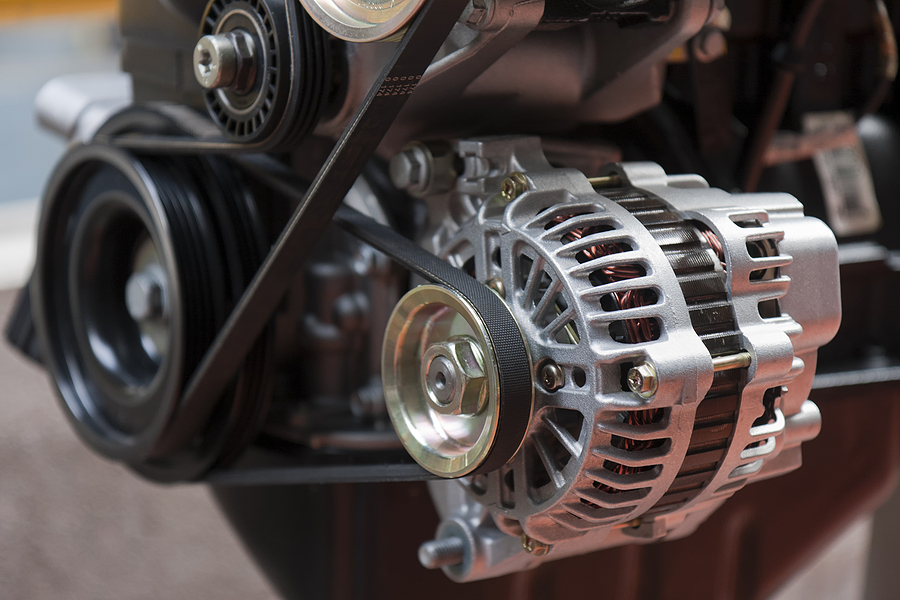German make and model cars are renowned for their performance and engineering, but even these precision machines are not immune to the occasional bump in the road. Among the various intricacies that demand attention, the alternator stands as a crucial component, vital to the operation of the car’s electrical system. In this detailed guide, we’ll explore not only the role of the alternator in European-made cars but also the roadmaps for both repair and replacement to keep these vehicles running at their best.

Common Alternator Problems in German Cars
For most drivers, the alternator is an obscure part that only becomes relevant when dashboard lights start to flicker or the car struggles to start. European or German make and model cars in particular are known for their complex electrical systems, and alternator issues can be markedly challenging to diagnose and solve. Owners may encounter problems such as irregular power delivery, dashboard warning lights illuminating, and in extreme cases, a complete shutdown.
What the Alternator Does
To effectively address alternator problems in your German car, it’s essential to first understand what the alternator does and the role it plays in the broader functioning of your vehicle’s electrical system. The alternator is a key component that works to convert mechanical energy into electrical energy. It powers the vehicle’s electrical systems while the engine is running and also replenishes the battery to its proper charge.
Signs of Alternator Issues
The alternator is an essential component of your vehicle that keeps the battery charged and powers your electrical system. It works by converting mechanical energy from the engine into electrical energy that is used to keep the battery charged and operate various components of your car, such as lights, radio, and power windows. Unfortunately, like any other part of a vehicle, the alternator can experience issues over time.
It is important to recognize the signs of alternator problems early on, as ignoring them can lead to more significant and costly issues down the road. Here are the most common:
Dimming or Flickering Lights
One of the most common signs of an alternator issue is dimming or flickering lights while driving. The alternator’s job is to keep the battery charged, which in turn powers the lights. If your headlights or interior lights are flickering or becoming dimmer, it could be a sign that the alternator is not functioning correctly.
Strange Noises
If you start to hear strange noises coming from under the hood of your car, such as grinding, whining, or squealing sounds, it could indicate an issue with the alternator. These noises may be caused by a malfunctioning pulley or belt that is connected to the alternator.
Dashboard Warning Light
Most modern cars are equipped with a dashboard warning light that indicates an issue with the electrical system. If this warning light comes on, it could mean there is a problem with the alternator or another component of the electrical system. It is essential to have the vehicle checked by a mechanic as soon as possible to avoid further damage.
Difficulty Starting the Vehicle
The alternator plays a crucial role in starting your car. If you start experiencing problems with your vehicle not starting or taking longer than usual to start, it could be due to a faulty alternator. As the battery drains, there may not be enough power to start the engine.
Dead Battery
If you find yourself needing to jump-start your car frequently, it could be a sign of alternator issues. A healthy alternator should keep the battery charged while driving, so if you are continuously dealing with a dead battery, it is worth having the alternator checked.
Burning Smell
If you smell something burning while driving, it could be a sign that the alternator is overheating. An overheated alternator can damage its internal components and lead to a complete failure if not addressed promptly.
Automotive Maintenance Tips for a Healthy Alternator
Prevention is often the best cure when it comes to the alternator in your German car. Basic automotive maintenance, such as keeping the engine and alternator clean from debris and ensuring the battery’s terminals are tightened and free of corrosion, can significantly extend the life of the alternator. Proactive measures like regular electrical system checks and timely replacement of worn parts can prevent the alternator from failing and causing more extensive damage to your German or European make and model car.
Conclusion
The alternator is the unsung hero of your German vehicle’s electrical system, and knowing how to address issues with it is essential for any car owner or driver. Regular checks and timely repairs or replacements can prevent more significant problems and keep your car running smoothly. Engage with your vehicle’s maintenance needs and to seek professional help when necessary. By doing so, you not only protect your investment but also ensure a safer and more enjoyable driving experience for years to come.
Keeping up with regular automotive maintenance is the most reliable way to maintain your car’s alternator and electrical system – especially if you drive a German vehicle. Contact Autohaus Dierolf at 317-571-0800 for European auto repair and auto service in Carmel, Indiana. We specialize in all make and model European and German vehicles.
Related Posts:
Harnessing the Power: Troubleshooting Common Auto Electrical Issues
Choosing the Right Car Battery for a German Car: Factors to Consider
Comprehensive Guide to Troubleshooting Common Issues with German Cars
